第20章 III(6)
Every Sunday that summer I preached in or near St. Johnsbury, and toward autumn we had a big meeting which the ministers of all the surrounding churches attended. I was asked to preach the ser- m on--a high compliment--and I chose that impor- t ant day to make a mistake in quoting a passage from Scripture. I asked, ``Can the Ethiopian change his spots or the leopard his skin?'' I realized at once that I had transposed the words, and no doubt a look of horror dawned in my eyes; but I went on without correcting myself and without the slightest pause. Later, one of the ministers congratulated me on this presence of mind.
``If you had corrected yourself,'' he said, ``all the young people would have been giggling yet over the spotted nigger. Keep to your rule of going right ahead!''
At the end of the summer the various churches in which I had preached gave me a beautiful gold watch and one hundred dollars in money, and with an exceedingly light heart I went back to college to begin my second year of work.
From that time life was less complex. I had enough temperance-work and preaching in the country school-houses and churches to pay my col- l ege expenses, and, now that my financial anxieties were relieved, my health steadily improved. Sev- e ral times I preached to the Indians, and these occasions were among the most interesting of my experiences. The squaws invariably brought their babies with them, but they had a simple and effective method of relieving themselves of the care of the infants as soon as they reached the church. The papooses, who were strapped to their boards, were hung like a garment on the back wall of the building by a hole in the top of the board, which projected above their heads. Each papoose usually had a bit of fat pork tied to the end of a string fastened to its wrist, and with these sources of nourishment the infants occupied themselves pleasantly while the sermon was in progress. Frequently the pork slipped down the throat of the papoose, but the struggle of the child and the jerking of its hands in the strangulation that followed pulled the piece safely out again. As I faced the congregation I also faced the papooses, to whom the indifferent backs of their mothers were presented; it seemed to me there was never a time when some papoose was not choking, but no matter how much excitement or discomfort was going on among the babies, not one squaw turned her head to look back at them. In that assemblage the emotions were not allowed to interrupt the calm intellectual enjoyment of the sermon.
My most dramatic experience during this period occurred in the summer of 1874, when I went to a Northern lumber-camp to preach in the pulpit of a minister who was away on his honeymoon. The stage took me within twenty-two miles of my desti- n ation, to a place called Seberwing. To my dismay, however, when I arrived at Seberwing, Saturday evening, I found that the rest of the journey lay through a dense woods, and that I could reach my pulpit in time the next morning only by having some one drive me through the woods that night. It was not a pleasant prospect, for I had heard appalling tales of the stockades in this region and of the women who were kept prisoners there. But to miss the engagement was not to be thought of, and when, after I had made several vain efforts to find a driver, a man appeared in a two-seated wagon and offered to take me to my destination, I felt that I had to go with him, though I did not like his appearance.
He was a huge, muscular person, with a protruding jaw and a singularly evasive eye; but I reflected that his forbidding expression might be due, in part at least, to the prospect of the long night drive through the woods, to which possibly he objected as much as I did.
It was already growing dark when we started, and within a few moments we were out of the little settlement and entering the woods. With me I had a revolver I had long since learned to use, but which I very rarely carried. I had hesitated to bring it now--had even left home without it; and then, im- p elled by some impulse I never afterward ceased to bless, had returned for it and dropped it into my hand-bag.
I sat on the back seat of the wagon, directly behind the driver, and for a time, as we entered the darkening woods, his great shoulders blotted out all perspective as he drove on in stolid silence.